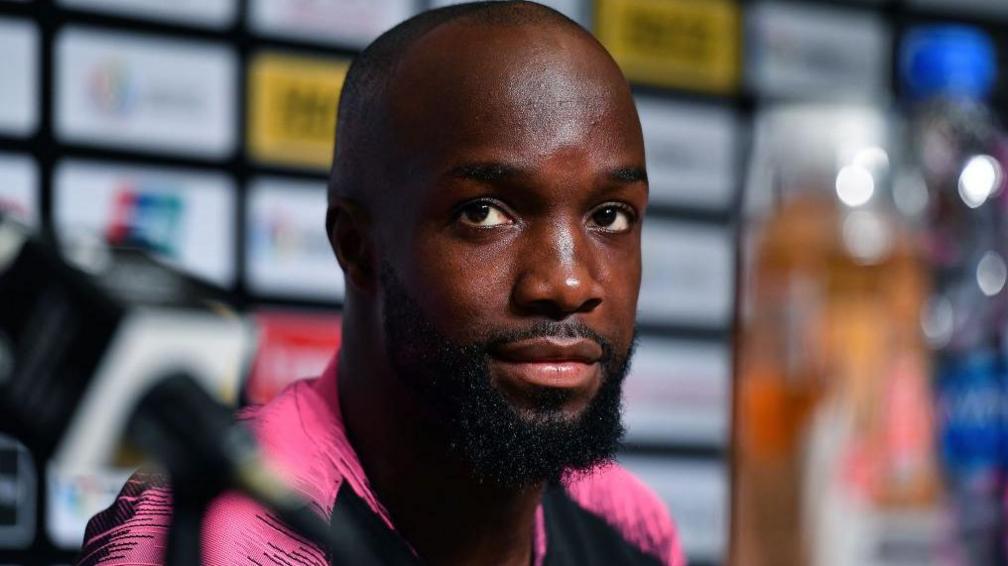“A seismic legal confrontation between players and Fifa.”
The view of former Fulham midfielder-turned-lawyer Udo Onwere when asked to assess the significance of the compensation claim launched against Fifa this week on behalf of current and former professional footballers over transfer rules.
On Monday, Dutch foundation Justice for Players (JFP) said it had started a class action lawsuit against the sport’s world governing body, along with the football associations of France, Germany, the Netherlands, Belgium and Denmark.
It argues that 100,000 footballers playing in Europe since 2002 could have lost income as a result of “unlawful” Fifa regulations, and that “preliminary analysis” shows that damages could amount to several billion pounds.
The case is the result of last year’s ruling by the highest European court that Fifa regulations over some football transfers broke EU laws.
In October, the European Court of Justice (CJEU) found in favour of former Chelsea and Arsenal midfielder Lassana Diarra after he argued some of the rules restricted his freedom of movement and breached competition law, and sued Fifa.
“This class action could rewrite the rules governing player mobility across the global football industry” says Onwere, who is now a partner at law firm Bray and Krais.
“What distinguishes this case from previous skirmishes with the governing body is its sheer scale and complexity… The outcome of this litigation could usher in a new era of transfer regulations and governance – one where contractual stability is balanced with player autonomy.
“It could prove to be as transformational as the landmark 1995 Bosman ruling.”
Such a comparison is notable, because JFP is being advised by Diarra’s Belgian lawyer Jean-Louis Dupont, who also won the landmark 1995 case at the CJEU on behalf of ex-player Jean-Marc Bosman.
That ruling dramatically changed the sport, meaning footballers could choose to run down their contracts and move clubs on a free transfer, with teams no longer able to demand compensation for out-of-contract players.
Thirty years on, some now believe this latest case could result in players being able to terminate their own contracts, without paying compensation, before those deals come to an end.
Background
Last year, the CJEU said that, by refusing to provide Diarra with an international transfer certificate (ITC) for a proposed move to Belgian club Charleroi in 2015 after he was found to have breached his contract with Lokomotiv Moscow (for which he was ordered to pay £8.4m to the Russian club and suspended), Fifa showed that its rules “impede the free movement of professional footballers wishing to develop their activity by going to work for a new club”.
Diarra’s lawyers contested the Fifa rule which makes a club wishing to sign a player jointly liable for compensation to a player’s old club, and at risk of sporting sanctions, in cases where the player’s previous contract was terminated without just cause.
They also challenged a rule which allows the national association of a player’s former club to withhold an ITC where there was a dispute, which they said also hindered the move.
The court ruled that Fifa should not be able to use the ITC system to prevent players who have breached a contract from moving and working where they choose.
At the time Fifa said it had been “continuously improving” the transfer system “for the benefit of players, clubs, leagues and member associations, to ensure that players can train, be developed and have stability, while safeguarding the integrity of competitions by implementing a robust regulatory framework for the international transfer system”.
It then adapted its transfer regulations on an interim basis, but accepted they could be open to challenge.
‘A huge hit’
Lucia Melcherts, the chair of JFP, said: “All professional football players have lost a significant amount of earnings due to the unlawful Fifa regulations. In any other profession, people are allowed to change jobs voluntarily. The same should be true in football, particularly as the average career span of a professional footballer according to a FIFPro study is only eight years long.”
“FIFA will find it difficult to put forward a robust defence to these claims in the face of a clear decision by the CJEU in the Diarra case that there was anti-competitive behaviour over several years”, says Daniel Gore, an arbitration lawyer at Withers.
“The anticipated floodgate of claims has commenced, and Fifa’s finances could take a huge hit at a time they are flying high after the expanded Club World Cup this year and World Cup in 2026.”
In a statement, the European division of global players’ union Fifpro, which backed Diarra’s case, said the action “represents the anticipated practical response” to the CJEU ruling, “effectively centralising advocacy for affected players’ interests that have broad implications for the football industry”.
It said it would “thoroughly assess” the foundation’s move, adding it “will always support fair compensation for affected players whose rights were breached, while driving meaningful reform towards inclusive governance structures in international football.
“This approach aims to shield past, current and future generations of players from unilateral and arbitrary decision-making processes that undermine or harm fundamental workers’ rights and fair competition.”
Related topics
- Football
Source: BBC

Leave a Reply